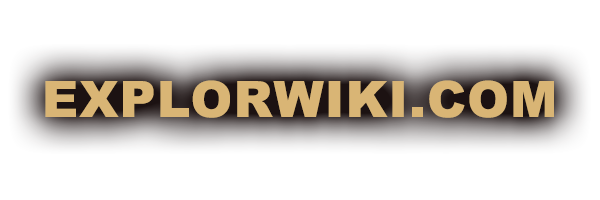Choosing the right career path is one of the most significant decisions in a person’s life. The field of study you choose can impact your financial stability, job satisfaction, and personal growth. With countless career options available today, making a choice can feel overwhelming. But don’t worry—this comprehensive guide will walk you through the process, from exploring your interests and strengths to learning about various professions and making an informed decision.
Why Is Choosing the Right Career So Important?
Your career defines not only how you spend your working hours but also how you shape your lifestyle. It determines your financial stability, work-life balance, and overall happiness. In essence, a career is more than just a job; it’s a journey that can shape your life for decades. Making an informed decision early on can lead to a more fulfilling and successful professional experience.
But how do you even start thinking about it?
Understanding Your Passions and Interests
One of the best ways to find a suitable career is to start with self-reflection. What are you passionate about? What activities bring you joy? Identifying your passions can serve as a guide for the fields of study you might enjoy and excel in.
- Think about hobbies you love. Do you spend your free time coding, creating art, or volunteering?
- Reflect on subjects you excel at in school. Your best grades can sometimes point you toward your strengths.
- Consider the problems you want to solve. Do you feel strongly about climate change, human rights, or technology innovation?
Assessing Your Strengths and Skills
While passion is essential, you also need to consider your natural talents and skills. Here are a few ways to assess these:
- Take career assessment quizzes. Many online platforms provide quizzes designed to match your skills and interests to potential careers. These assessments can give you a starting point for exploration.
- Reflect on your academic performance. Are you good at math, writing, or science? These strengths can lead to a clear set of options.
- Ask people you trust. Sometimes friends, family, or teachers can provide insights into your unique abilities.
Exploring Different Career Fields
Once you have a better idea of your interests and skills, it’s time to explore different career fields. Here’s a breakdown of several popular industries:
1. Healthcare and Medicine
If you love helping others and are interested in science, healthcare may be a great option. Careers in healthcare range from nursing and physical therapy to more specialized roles like surgeon or medical researcher. The demand for healthcare professionals is continuously growing, making it a secure field to study.
2. Technology and Engineering
The tech industry is booming, and the demand for professionals skilled in coding, software development, and data analysis has never been higher. Careers like web developer, data scientist, and cybersecurity analyst are not only financially rewarding but also highly impactful. Engineering is another crucial part of this sector, offering opportunities in civil, mechanical, electrical, and chemical engineering.
3. Business and Finance
Do you have a knack for leadership or an interest in economics? A degree in business or finance could lead to roles like financial analyst, marketing manager, or entrepreneur. Business-related careers are diverse and can provide opportunities across various industries, from retail to real estate.

4. Arts and Humanities
For those with a creative flair, pursuing a career in the arts or humanities can be incredibly fulfilling. This field includes options like graphic design, writing, performing arts, and teaching. While some may worry about job security in these fields, the rise of digital content and new media has opened up many opportunities for creative professionals.
5. Social Sciences and Public Service
If you’re passionate about making a difference in society, careers in social sciences or public service might be your calling. You could become a psychologist, social worker, or public administrator. Understanding human behavior and societal issues is crucial for creating meaningful change.
The Role of Internships and Volunteer Work
Once you’ve narrowed down your options, gaining real-world experience is crucial. Internships and volunteer work provide practical insights into your chosen field and help you understand if it’s the right fit. Here’s why they’re important:
- Networking: You’ll meet professionals who can offer mentorship and guidance.
- Skill development: Hands-on experiences often teach you more than classroom learning.
- Resume building: Employers value candidates with relevant experience.
Informational Interviews: A Hidden Gem
Have you ever heard of informational interviews? These are casual conversations with professionals already working in the fields you’re interested in. They can provide valuable insights into the daily realities of a career, including challenges and growth opportunities.
To conduct an effective informational interview:
- Research the person and their role. Make sure to ask thoughtful questions.
- Focus on their experiences. Understand what led them to their current position.
- Ask for advice. You might learn about essential skills or resources for further exploration.
The Benefits of Taking Career Quizzes
If you’re feeling lost, career quizzes can help. These assessments are not just for fun; they use psychological theories to match you with potential career paths based on your answers. Here are a few popular platforms:
- 16Personalities: Based on the Myers-Briggs Type Indicator, this quiz matches you with careers based on your personality.
- O*NET Interest Profiler: A government resource that connects your interests to a variety of professions.
- CareerExplorer: Offers a more detailed analysis of your skills and preferences.
While these quizzes are a good starting point, they shouldn’t be your sole decision-making tool. Use them as guides, not absolutes.
Resources for Further Exploration
If you’re still unsure, don’t worry! There are countless resources available to help you:
- Career counseling services: Many schools and universities offer free career counseling.
- Online courses and workshops: Platforms like Coursera, Udemy, and LinkedIn Learning can help you explore potential fields.
- Books and podcasts: Sometimes, reading about other people’s career journeys can inspire your own path.
Tips for Making Your Final Decision
Once you’ve gathered all the necessary information, it’s time to make a decision. Here are a few tips to help you choose:
- List the pros and cons of each career option.
- Consider the long-term potential. Is the field expected to grow in the future?
- Visualize your life in that career. Does it align with your personal goals and values?
- Stay flexible. Remember, it’s okay to change your mind. Many professionals pivot to new careers over time.
Conclusion
Choosing what to study and which career to pursue is a big decision, but it doesn’t have to be daunting. By understanding your passions, assessing your skills, exploring different fields, and leveraging resources like internships and career quizzes, you’ll be well on your way to making an informed choice. Remember, the key is to stay curious and open-minded, as the perfect career path might be one you haven’t even considered yet.
Your future is full of possibilities. Take it one step at a time, and you’ll find the right path that aligns with your dreams and aspirations.
Here some recommended links selected for you: The Best Books of the Month, Todays best Deals at Amazon, Best Sellers in Cell Phones & Accessories and last but not least the easy and great way to send a gift for the holidays: Amazon.com eGift Card (Instant Email or Text Delivery).




